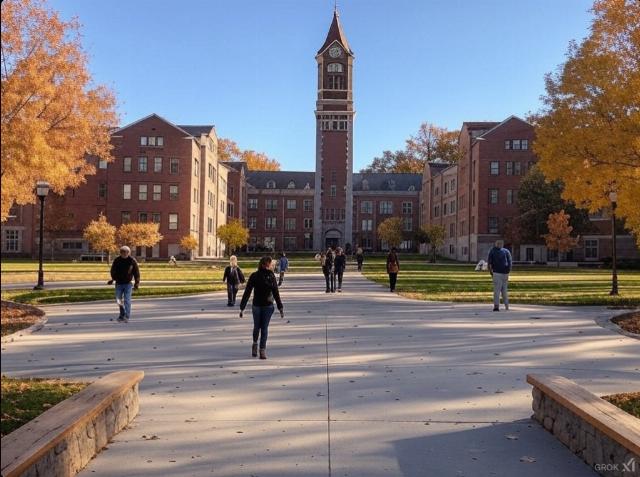America’s higher education system is in freefall, for young adults are indoctrinated, not educated. It doesn’t have to be that way. Imagine you are a mouse in the corner of the conference room when the Board of Trustees of a small Midwest college trying to bring education back to the classroom conducts its monthly meeting.
The chairman of the board gavels the meeting open, looks around the room with a grave countenance, and offers brief introductory remarks.
“We meet today in an atmosphere of crisis, with which I know you are all familiar and which we have discussed in depth at past board meetings. This crisis is the widespread crisis of confidence in the value of higher education in general and, more specifically, in the value of a diploma from our college, whether seen through the public’s eyes or through those of our students, their parents, and their future employers.
“The focus of today’s meeting is to determine what action we shall take to weather this crisis. Our college president and I have had numerous discussions over the past several weeks, and he holds some definite ideas regarding the course of action appropriate for us to take at this time. I have invited him to share his ideas with us today. For that purpose I give you now our college president.”

Image by Grok.
The college president arose from his chair and walked briskly to the speaker’s podium, scanned the room with a smile, and began his talk.
“Thank you, Mr. Chairman, for that introduction. I assure you and all the members of the board that my remarks today will be brief and to the point.
“Our objective as an institution of higher education must be to prepare our students for the various roles in life they may undertake, including the roles of citizen, parent, scientist, engineer, educator, and whatever role of productive work they may elect.
“Most specifically, we want our students’ prospective employers to feel a warm glow of confidence in applicants’ competency and reliability when they see our college cited in a resume.
“To reach this objective during the current crisis we must boldly seize the initiative and undertake two fundamental changes to our college culture and curriculum.
“First, we must rescue our beloved institution from the death grip of the Woke ideology by obliterating all vestiges of that ideology from our campus. The Woke obsessions with race, gender, and sexual identity must end.
“To be sure, there will be some drama among faculty and staff as we divest the college of those obsessions, joining Toyota, Ford, John Deere, Lowes, and many others in the long and growing list of our students’ future employers who have repudiated the Woke ideology. However, notwithstanding the drama, this struggle must be won for the future of our students and our college.
“Second, there are specific upgrades that must be made to the course offerings and graduation requirements of four specific curriculum departments.
“(1) English: Reinstate grammar, reading, and writing, and add speech with an emphasis on diction. Employers want workers who can read English with understanding, write English competently, and speak English fluently with correct and understandable pronunciation.
“(2) Philosophy: Make Introduction to Logic a graduation requirement, including a section on the logic of science. Employers want employees who can marshal arguments supporting or opposing measures under consideration with plausible grounds and conclusions.
“(3) Mathematics: Require every student to take algebra through pre-calculus. In addition, those getting business, social science, and statistics majors must also take an additional “calculus light” class. Employers want employees capable of following the argumentation of basic algebra, elementary calculus, and statistics.
“(4) Political Science: Make American Government a graduation requirement. The course must be redesigned to go far beyond the shopworn “how a bill becomes law.” The redesigned course must give students a full understanding of how our national, state, and local governments work and of the individual’s role as a citizen. This course must present the Teutonic origin of self-government, trace the history of the English Common Law, present the American post-declaration adoption of the common law as our fundamental law, and explain the legal nature of our federal republic.
“Finally, we must regard it as probable that the process of implementing these changes will bring to light other changes that highly recommend themselves. When confronted with this reality, we must not shrink from further innovation.”
The Board, which cared about the college and its students, responded to these recommendations with rousing applause.